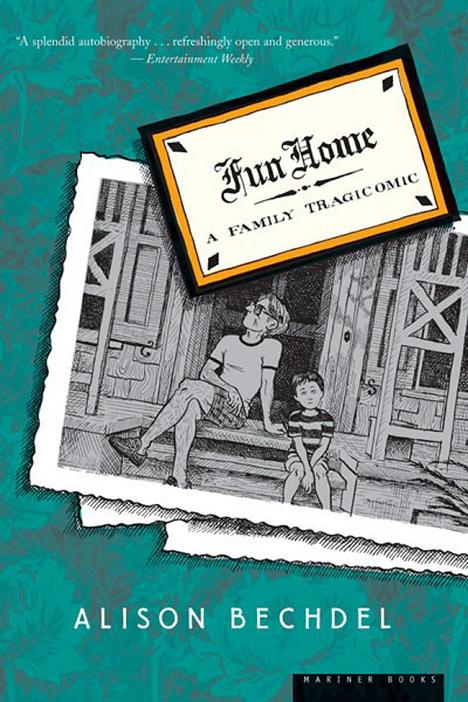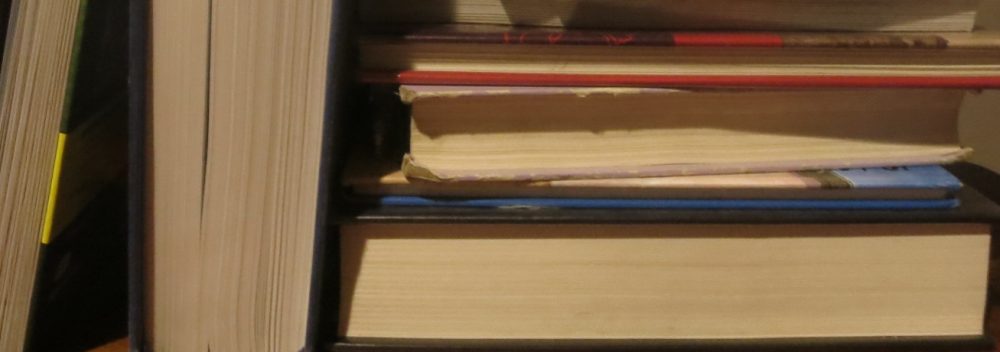
SPOILERS
One of the instriguing aspects of the book challenge is that seemingly innocuous categories like “A book with a green spine”, which this book fits into, could have been anything. It’s such an arbitrary requirement that limits the book based on nothing more than aesthetics without placing any expectations on the content. It amazes me that I chose a work that was so affecting for no other reason that the color of the spine.
Not much about Alison Bechdel’s childhood was normal. Her educated, artistic parents settle in the small town of Beech Creek, PA (population 700) so her father, the local high school English teacher could also run the family funeral home (the titular Fun Home). They resided in a run-down gothic revival mansion though the family was not rich. Her father lived as a closeted gay man and Bechdel herself was on the verge of discovering/admitting that she was a lesbian.
Though it’s very much an autobiography, Bechdel’s groundbreaking work centers around the complicated relationship she had with her complicated father. He loomed as a shadowy figure rather than an actual living breathing human being. Though physically present, he remained emotionally detached as he grappled with conflicting forces: his repressed sexual urges and familial and social responsibilities. Trying to decipher her enigmatic father decades after his death, she recalls the good, the bad and the confounding parts of her journey from childhood to adulthood.
Bechdel is a complicated figure herself. Fascinated by images of masculinity and men’s fashion, she eschews anything girly or overtly feminine. In college, she comes out, a daunting yet liberating realization. Just months later, her father dies under mysterious circumstances. Though his death could easily have been tragic accident, she considers it suicide. It haunts Bechdel, leaving her to wonder if her announcement may have been a factor, if not the catalyst for his choice, a heavy burden for a young woman.
Each panel is highly detailed and dense with visual information, like still frames shot in deep focus. She doesn’t shy away from nudity or sexual situations which can be jarring—especially if you’re reading it in the waiting room of your kids’ orthodontist’s office. Being allowed so much access into someone’s life feels voyeuristic at times, mostly because Bechdel’s experience is so specific I couldn’t even pretend to relate though I certainly sympathize.
Overlaying her childhood on top of the literature that was so important to both her and her father she draws comparisons to tragic figures like Daedalus and Gatsby as well as authors like Camus and Joyce. It’s as if she’s analyzing him against the field of literature rather than psychology. Of course, with complicated questions and subjects, there’s never easy answers. Fun Home doesn’t pretend to offer any. Bechdel simply shares her thoughts, opinions and musings about her unique childhood.
